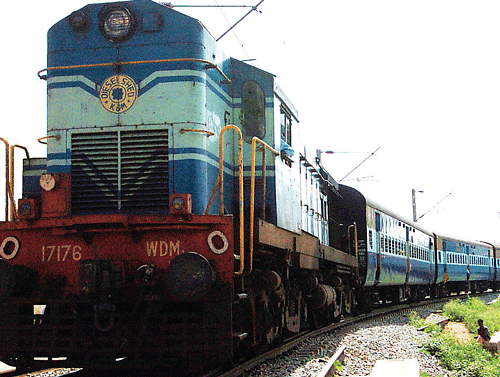
The State government has entrusted Rail India Technical and Economic Search (RITES) to prepare a Detailed Project Report (DPR) for the first phase of the Commuter Rail System (CRS) which proposes to connect two railway stations in Bangalore City with Ramanagara district and Malur of Kolar district.
The Directorate of Urban Land and Transport (DULT) has provided RITES four months time to prepare the DPR for phase 1A of the project. The orders were issued during the second week of October. The phase will connect Bangalore City-Nayandahalli-Jnanabharathi-Kengeri-Hejjala-Bidadi-Ramanagara and Bangalore City-Bangalore Cantonment-Bangalore East- K R Puram- Whitefield-Malur. RITES has already prepared the feasibility for the project and submitted it to DULT last year.
“We are working on the modalities for setting up the Bangalore Suburban Rail Corporation Limited to execute the project. Chartered accountants are working out the structure to float the company,” DULT Commissioner V Manjula said. Once the corporation is set up, it will function as a special purpose vehicle.
Chief Minister Siddaramaiah had announced in the revised state budget proposal 2013-14 that the government was keen to execute the project in a time-bound manner.
The full project will be spread out in four phases and proposes to connect Bangalore with Hosur, Mandya, Bangarpet, Chikaballapur, Doddaballapur, Tumkur, Nelamangala and Mandya.
Feasibility report
According to the feasibility report, one of the first requirement would be the construction of two additional platforms at the Bangalore City railway station.
At present, the Bangalore yard has 10 platform lines, six pit lines (maintenance lines), eight stabling (meant for stabling trains during their idle time or when they are waiting for their turn onto platform line or pit line).
The study has recommended that two maintenance lines be converted to platforms for passengers of commuter trains.
The phase would also require four pit lines at Byappanahalli railway station. Execution of work will not involve obstruction to running trains. The report has also recommended that initially five electric trains be run on the system which could be expanded further.
Manjula said the DULT is also preparing a proposal for the concurrence of the project from the Railways. “The exact cost of the Phase 1A of the project will be known once the DPR is finalised. The feasibility study has estimated project cost at Rs 950 crore and finally it may touch Rs 1,050 crore,” she added.
The government would also request the Railways for financial participation in the project so that it could be executed on a cost-sharing basis.